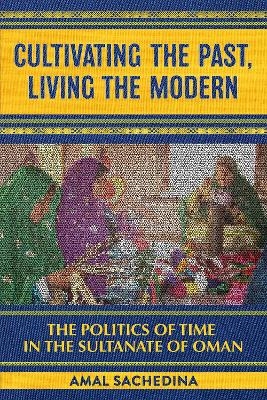
Cultivating the Past, Living the Modern
The Politics of Time in the Sultanate of Oman
Seiten
2021
Cornell University Press (Verlag)
978-1-5017-5861-4 (ISBN)
Cornell University Press (Verlag)
978-1-5017-5861-4 (ISBN)
Cultivating the Past, Living the Modern explores how and why heritage has emerged as a prevalent force in building the modern nation state of Oman. Amal Sachedina analyses the relations with the past that undergird the shift in Oman from an Ibadi shari'a Imamate (1913–1958) to a modern nation state from 1970 onwards.
Since its inception as a nation state, material forms in the Sultanate of Oman—such as old mosques and shari'a manuscripts, restored forts, national symbols such as the coffee pot or the dagger (khanjar), and archaeological sites—have saturated the landscape, becoming increasingly ubiquitous as part of a standardized public and visual memorialization of the past. Oman's expanding heritage industry, exemplified by the boom in museums, exhibitions, street montages, and cultural festivals, shapes a distinctly national geography and territorialized narrative.
But Cultivating the Past, Living the Modern demonstrates there are consequences to this celebration of heritage. As the national narrative conditions the way people ethically work on themselves through evoking forms of heritage, it also generates anxieties and emotional sensibilities that seek to address the erasures and occlusions of the past.
Since its inception as a nation state, material forms in the Sultanate of Oman—such as old mosques and shari'a manuscripts, restored forts, national symbols such as the coffee pot or the dagger (khanjar), and archaeological sites—have saturated the landscape, becoming increasingly ubiquitous as part of a standardized public and visual memorialization of the past. Oman's expanding heritage industry, exemplified by the boom in museums, exhibitions, street montages, and cultural festivals, shapes a distinctly national geography and territorialized narrative.
But Cultivating the Past, Living the Modern demonstrates there are consequences to this celebration of heritage. As the national narrative conditions the way people ethically work on themselves through evoking forms of heritage, it also generates anxieties and emotional sensibilities that seek to address the erasures and occlusions of the past.
Amal Sachedina is Professorial Lecturer at American University.
Introduction: Heritage Discourse and Its Alterities
1. Reform and Revolt through the Pen and the Sword
2. Nizwa Fort and the Dalla during the Imamate
3. Museum Effects
4. Ethics of History Making
5. Nizwa, City of Memories
6. Nizwa's Lasting Legacy of Slavery
7. The al-Lawati as a Historical Category
Conclusion: Cultivating the Past
| Erscheinungsdatum | 16.08.2021 |
|---|---|
| Zusatzinfo | 1 Maps; 13 Halftones, black and white |
| Verlagsort | Ithaca |
| Sprache | englisch |
| Maße | 152 x 229 mm |
| Gewicht | 907 g |
| Themenwelt | Geisteswissenschaften ► Geschichte ► Regional- / Ländergeschichte |
| Geisteswissenschaften ► Religion / Theologie ► Islam | |
| ISBN-10 | 1-5017-5861-6 / 1501758616 |
| ISBN-13 | 978-1-5017-5861-4 / 9781501758614 |
| Zustand | Neuware |
| Haben Sie eine Frage zum Produkt? |
Mehr entdecken
aus dem Bereich
aus dem Bereich
Universalgelehrter, Polarreisender, Entdecker
Buch | Hardcover (2024)
mareverlag
28,00 €


